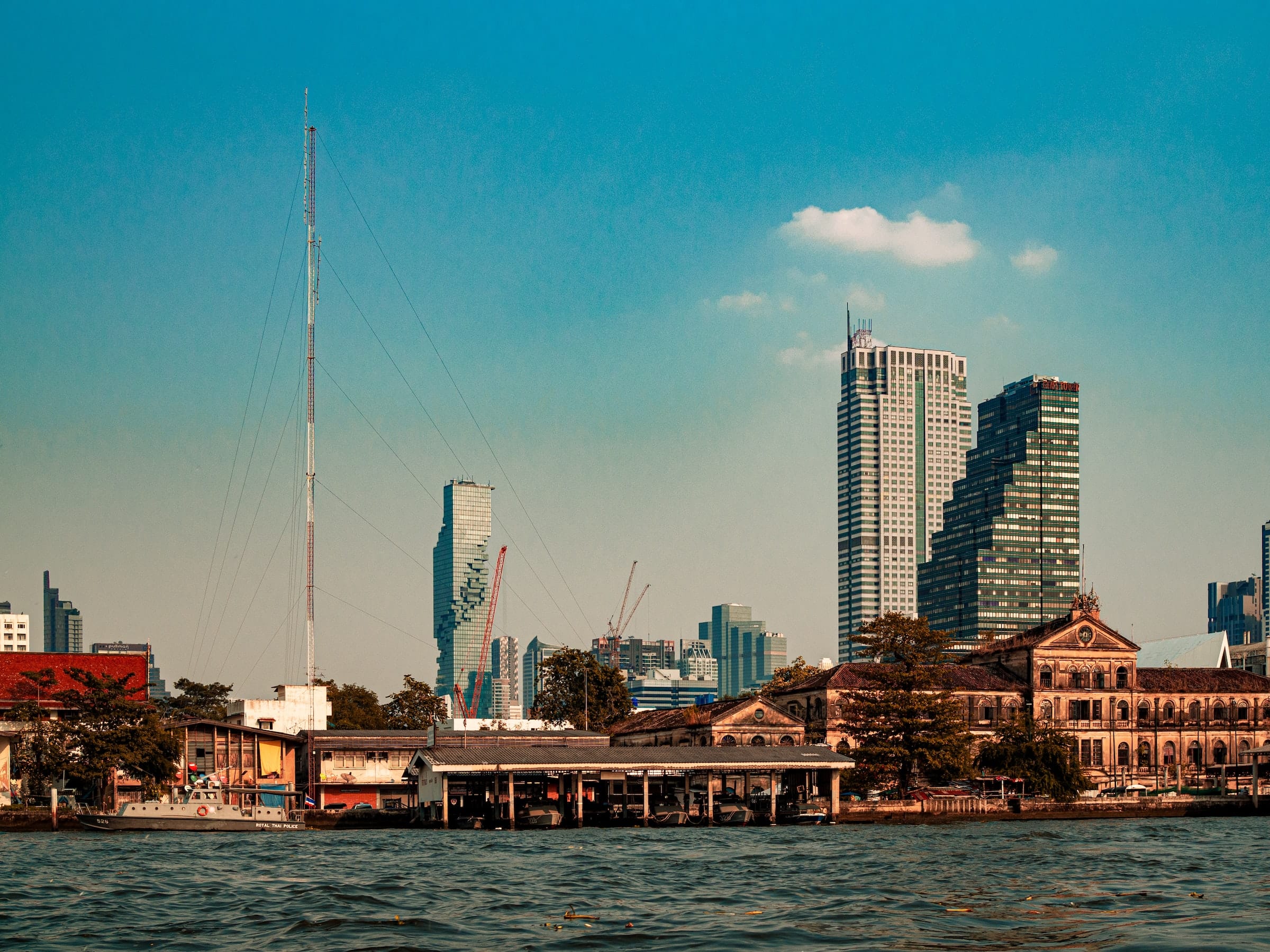The Rise of a Metropolis: A Glimpse into Bangkok’s Colorful Past
Bangkok, the bustling capital of Thailand, has captured the hearts of millions of visitors with its stunning temples, vibrant street life, and mouth-watering cuisine. However, this ever-evolving city has a history as diverse and colorful as its present-day attractions. Join us as we trace the origins and growth of this enigmatic metropolis, from a small riverside village to the thriving, cosmopolitan city we know today.
A Humble Beginning: The Birth of Bangkok
Before it became a bustling metropolis, Bangkok was a small trading post known as Bang Makok, or “place of olive plums,” located at the confluence of the Chao Phraya River and the Gulf of Thailand. In 1782, King Rama I, the founder of the Chakri Dynasty, established Krung Thep, or “City of Angels,” as the capital of the Kingdom of Siam after the fall of the ancient city of Ayutthaya. Bangkok was chosen for its strategic location, surrounded by natural defenses such as rivers and canals, making it easier to defend against potential invasions.
The Golden Age: Architectural Marvels and Cultural Expansion
Under the reign of King Rama I, Bangkok experienced rapid growth and development, particularly in the areas of architecture, culture, and religion. The construction of the iconic Grand Palace, which remains the spiritual heart of the nation, and the Temple of the Emerald Buddha marked the beginning of a golden age. During this time, many of the city’s most famous temples, such as Wat Arun and Wat Pho, were built or renovated, showcasing the remarkable craftsmanship and artistic skills of the Siamese people.
Modernization and Western Influence
Bangkok’s transformation into a modern, cosmopolitan city can be traced back to the 19th century, during the reigns of King Rama IV and King Rama V. These visionary rulers recognized the importance of modernization to secure Siam’s future, adopting Western technology and ideas without losing touch with their cultural heritage. Infrastructure improvements, such as the construction of railways, roads, and telegraph lines, helped connect Bangkok with the rest of the country and the world. Additionally, the establishment of schools and hospitals, as well as the modernization of the legal system, laid the foundation for the city’s continued growth and development.
The 20th Century and Beyond: A City on the Move
Throughout the 20th century, Bangkok continued to expand and evolve, driven by political, social, and economic factors. The city played a pivotal role in World War II, with its strategic location making it a sought-after prize by foreign powers. In the post-war years, Bangkok emerged as a hub for international trade and tourism, attracting visitors from around the globe. This period also saw significant urban development, with the construction of skyscrapers, shopping malls, and the expansion of the city’s transportation network.
Today, Bangkok is a thriving metropolis that perfectly blends ancient traditions with modern amenities, making it one of the world’s most captivating cities. Its rich history has shaped its unique identity and continues to inspire both residents and visitors alike. As we look to the future, Bangkok’s storied past serves as a reminder of the resilience and innovation that have propelled it forward, and its potential for continued growth and transformation.
A City of Contrasts: Preserving the Past and Embracing the Future
Bangkok’s unique charm lies in its ability to seamlessly blend the old and the new, offering visitors a diverse and unforgettable experience. The city is a melting pot of cultures, where historic temples stand side by side with gleaming skyscrapers, and bustling street markets coexist with luxury shopping malls. This fusion of tradition and modernity is a testament to the city’s adaptability and resilience, as it continues to evolve while staying true to its roots.
In recent years, there has been a growing awareness of the need to preserve Bangkok’s heritage, with both the government and local communities working together to safeguard the city’s historic sites and traditions. From the restoration of ancient temples to the promotion of traditional arts and crafts, these efforts ensure that the rich history of Bangkok remains alive for future generations to appreciate and enjoy.
A Gateway to Southeast Asia and Beyond
Bangkok’s strategic location at the heart of Southeast Asia has made it a gateway to the region and a crucial hub for trade, tourism, and diplomacy. With its modern infrastructure, international airport, and well-developed transportation network, the city serves as a convenient base for exploring the surrounding countries and their diverse cultures.
Moreover, Bangkok’s prominence on the global stage has also made it an important center for international events and conferences, attracting visitors and businesses from around the world. This cosmopolitan character, combined with its rich history and vibrant culture, ensures that Bangkok remains an alluring destination for both leisure and business travelers alike.
Celebrating Bangkok’s Storied Past and Bright Future
As we delve into the fascinating history of Bangkok, it becomes clear that the city’s dynamic spirit, resilience, and adaptability have been instrumental in its growth and development. From its humble beginnings as a riverside village to its current status as a thriving, cosmopolitan metropolis, Bangkok’s journey is a testament to the enduring strength and spirit of its people.
By celebrating its storied past and embracing the challenges and opportunities of the future, Bangkok continues to captivate the hearts and minds of those who visit its vibrant streets, providing a rich tapestry of experiences that defy expectations and leave a lasting impression. As the city looks ahead, one can only imagine what the next chapter in Bangkok’s remarkable story will bring.
